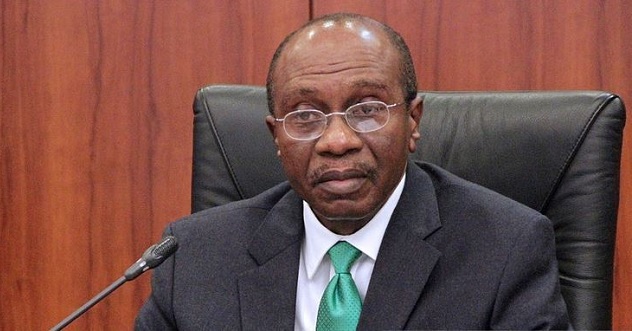Business
CBN’s MPC retains interest rate at 14%

The Monetary Policy Committee, MPC, of the Central Bank of Nigeria, CBN, has left the Monetary Policy Rate, MPR, at the same level it has been since June 2016, 14 percent.
This was announced by the CBN Governor, Godwin Emefiele on Tuesday at the end of the MPC meeting in Abuja, adding that the committee chose to leave the MPR at 14 percent to combat inflation due to foreseen increase in global and domestic risk to the country’s economy.
Emefiele, while briefing the media on the outcome of the MPC, said all 11 members were present at the meeting and they all voted to retain the MPR.
The Cash Reserves Ratio (CRR) also remained unchanged at 22.5 per cent, liquidity at 30 per cent and Asymmetric corridor at +200 and -500 basis points around the MPR.
Giving more insight to what informed the committee’s decisions, Emefiele said concerns were raised on the impact of the continued trade tension between United States of America and China, as well as the Brexit situation in Europe.
Speaking on the domestic risks, the CBN Governor said cited persistent security challenge in the North East, the herdsmen attack in other regions and perceived political risk due to the upcoming general elections.
He said: “In the light of the concerned risk confronting the economy, including the global and domestic inflationary measure which has intensified the risk of currency depreciation, the MPC is of the view that a loosening option is very remote.
Read alao:DPR rakes in N1.3trn revenue in 2018
“The MPC also felt that tightening will result in the loss of the gains so far achieved and may drive banks to reprise assets, thus increasing the cost of credit, as well as elevating credit risk in the economy.
“It will also worsen non-performing loans in banks.
“The committee also felt that tightening will dampen investment and hamper improvement in output growth, given the already fragile growth performance so far achieved.
“In the light of the factors, the committee decided to keep the policy parameters unchanged from their current levels by a vote of all 11 members.”
Emefiele further noted that forecasts of key macroeconomic variables indicated a positive outlook for the economy in 2019, adding that though the IMF had predicted that the country’s GDP would grow by two per cent, the World Bank, by 2.2 per cent, the CBN was of the view that the country would grow by at least 2.28 per cent.
“The commitee noted the relative stability at both the bureau de change and investors and exporter’s window of the foreign exchange market supported by the bank’s exchange rate market polices.
“It observed with satisfaction, the contribution to stability in the market and the positive implications of the currency swap agreement with China and the inflow of the 2.8 billion dollars Euro Bond.
“The commitee also noted the marginal increase in the foreign reserve from 42.45 billion dollars as at the end of December 2018 to 43.28 billion dollars as Jan. 21, 2019.
“The committee recommended that government should focus its expenditure on infrastructure investment and urged the Federal Government to sustain the pace in addressing the infrastructure deficit in the country”, Emefiele said.
Join the conversation
Support Ripples Nigeria, hold up solutions journalism
Balanced, fearless journalism driven by data comes at huge financial costs.
As a media platform, we hold leadership accountable and will not trade the right to press freedom and free speech for a piece of cake.
If you like what we do, and are ready to uphold solutions journalism, kindly donate to the Ripples Nigeria cause.
Your support would help to ensure that citizens and institutions continue to have free access to credible and reliable information for societal development.






















